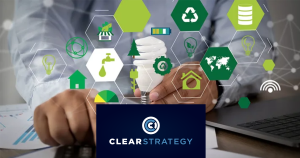You are in business to make money, so profits are top of mind, but how often do you think about the long-term viability of your environmental practices? Here are three good reasons to look not only at today’s profit, but sustainability over the long haul.
environmental practices? Here are three good reasons to look not only at today’s profit, but sustainability over the long haul.
- Externalized environmental costs can become future liabilities. If your business, power providers, or other suppliers generate greenhouse gasses, it may be tempting to let those emissions continue rather than paying for GHG abatement. Failing to reduce GHGs shifts the costs associated with emissions to individuals and communities, the planet, and future generations. Increasingly, communities and individuals are challenging companies in court for failures to assume environmental costs and instead let them be borne by society at large. Today’s decision to boost profits by externalizing an environmental cost may lead to future claims, defense costs, and liability.
- Short-term overuse of scarce resources may lead to future shortages. If you need a natural resource for this
 quarter’s production, you might be tempted to consume all you need today, even if continued use at the current rate will lead to depletion. Depletion threatens the long-term viability of your company and the entire industry. If a competitor can claim that your use of a resource was unfair and anti-competitive, your actions might be challenged by regulators, and by shareholders who are looking for long-term value creation.
quarter’s production, you might be tempted to consume all you need today, even if continued use at the current rate will lead to depletion. Depletion threatens the long-term viability of your company and the entire industry. If a competitor can claim that your use of a resource was unfair and anti-competitive, your actions might be challenged by regulators, and by shareholders who are looking for long-term value creation. - A poor environmental record can damage reputations and trust . Companies that don’t effectively manage the risks
 associated with adverse environmental impacts face customer and employee dissatisfaction. It takes a long time to build a reputation, and to rebuild trust once it is lost. A company that fails to acknowledge its environmental impact and to adopt sustainable practices risks becoming obsolete in a world where environmental concerns are increasingly prioritized.
associated with adverse environmental impacts face customer and employee dissatisfaction. It takes a long time to build a reputation, and to rebuild trust once it is lost. A company that fails to acknowledge its environmental impact and to adopt sustainable practices risks becoming obsolete in a world where environmental concerns are increasingly prioritized.
Sustainable business practices that account for environmental factors are becoming more critical for long-term success and resilience in an ever-changing global landscape.
How do you look at your business and portfolios and weigh long-term impact against immediate returns? Do you look beyond impact to the company’s financial performance to impact to the industry? The planet? Future generations?

